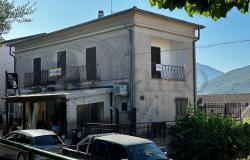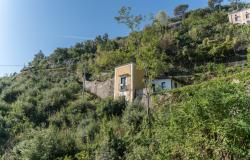 Campania regional Chief Antonio Bassolino admitted on Tuesday that the southern region had made a number of mistakes in dealing with its refuse crisis while announcing a project to solve the problem.
Campania regional Chief Antonio Bassolino admitted on Tuesday that the southern region had made a number of mistakes in dealing with its refuse crisis while announcing a project to solve the problem.
A ten-point plan will be unveiled by mid-October after lengthy consultations with experts, he said.
"It's obvious that a serious reflection on the past and what could happen in the future will help avoid a repetition of past mistakes," Bassolino told a meeting of experts gathered in Naples.
"The lengthy and difficult experience in Campania can also serve as a reference point for a number of regions that could face similar difficulties in the future."
Influential sociologist Domenico De Masi told the meeting that other major cities in the world were facing a similar refuse emergency.
The experience in Naples, Masi stressed, could be "transformed from negative to positive so as to make the city an experimental model" for others.
Campania has suffered repeated trash emergencies in recent years but the current one has drawn international attention.
Three weeks ago the European Commission started infringement proceedings against Italy over the handling of waste in the region.
It underlined the "risk of the spread of illnesses and of air, water and soil pollution".
The Commission stressed that regional disposal facilities were inadequate, posed major risks for health and the environment and violated EU laws.
The trash crisis prompted the US embassy in Rome last week to warn Americans they faced possible health risks by visiting the Naples area.
The embassy advisory note, posted on its website rankled Naples Mayor Rosa Russo Jervolino who said it was "uncalled for and ill-timed because the emergency is over."
"The city is clean and the piles of garbage are gone," the centre-left mayor said.
In its note the embassy said "US citizens travelling to or through the area may encounter mounds of garbage, open fires with potentially toxic fumes, and/or sporadic public demonstrations by local residents attempting to block access to dumps".
But Jervolino said that sporadic fires lit by angry residents at the height of the trash crisis, which broke out in May, "were never a direct threat to tourists or residents."
The 70-year-old mayor, who was re-elected to a second five-year term last year, said that the only solution to Campania's recurrent trash emergencies was to build more incinerators.
But protesters have been fighting new incinerators out of fear they will not meet acceptable health and environmental standards in a region where refuse-disposal problems have already been linked to an increase in cancer deaths.
In the meantime, residents in Naples and other Campania towns have regularly been left with refuse piling up in the streets outside their homes for days on end, with nowhere to take it.
The government recently appointed a new emergency commissioner to deal with the crisis after Civil Protection chief Guido Bertolaso handed in his resignation.
Bertolaso's resignation came shortly after parliament approved an emergency decree aimed at resolving the crisis.
The decree identified sites for new refuse dumps and gave state officials special powers but it has been contested as inadequate by environmentalists.
Ermete Realacci, head of the House's Environment Committee, said last week that Campania officials had "no alibi" for the crisis.
Realacci, former head of the environmental lobby group Legambiente, said the real problem in the region was the involvement of the local mafia, known as the Camorra, in the trash disposal business.
Trash disposal is one of the Camorra's most lucrative businesses and the organisation has created hundreds of illegal dumps in the region where it often buries or burns dangerous refuse.
Anti-mafia officials warned recently that the Camorra was actively sabotaging plans to build incinerators because it would undermine its dumping business.
According to Italian environmental organisation Legambiente, waste trafficking nets organised crime groups some 3.2 billion euros a year.







